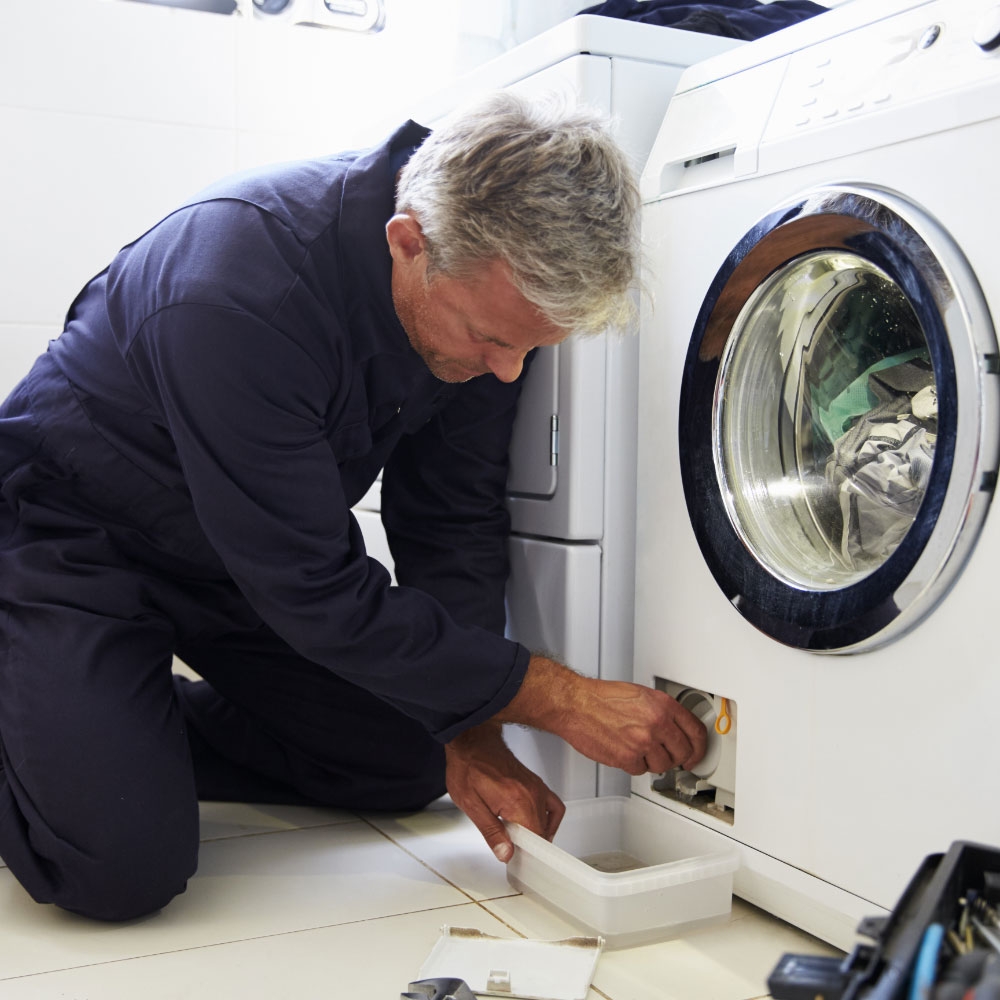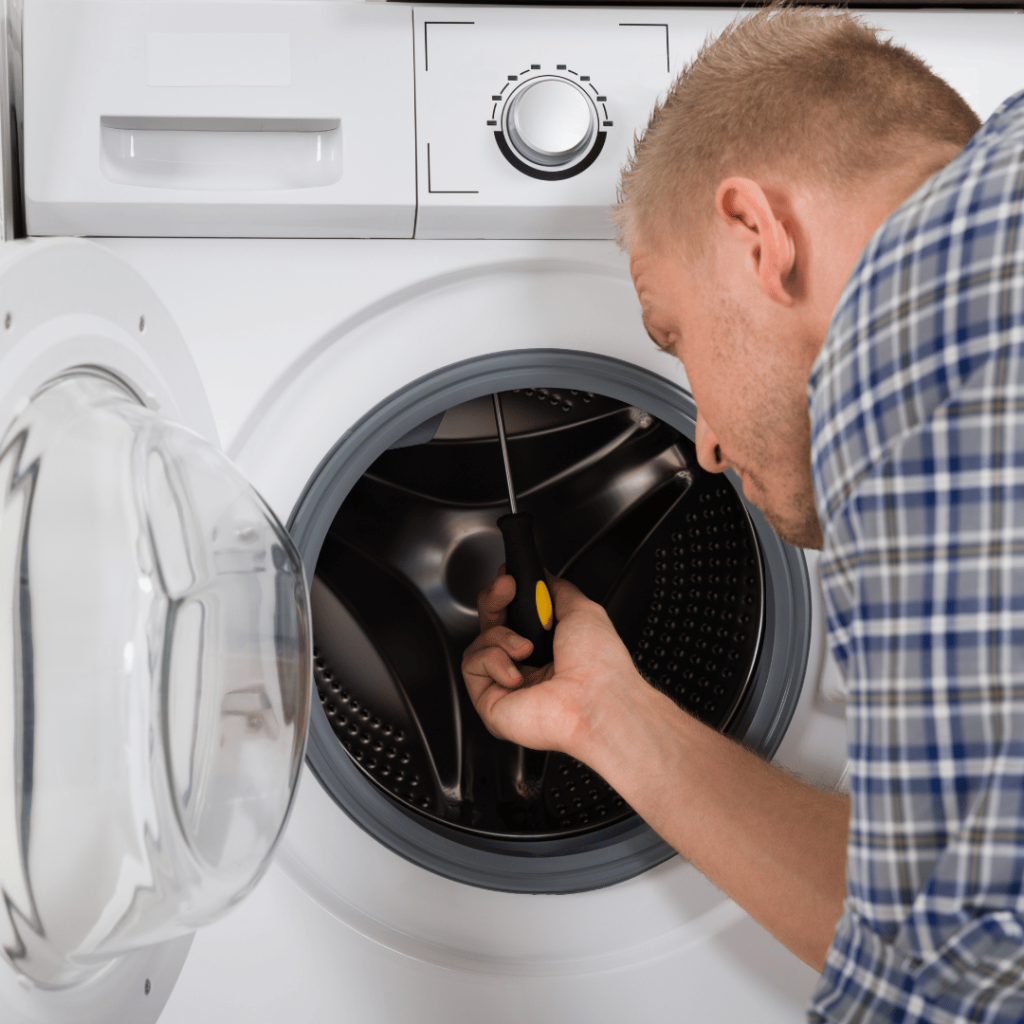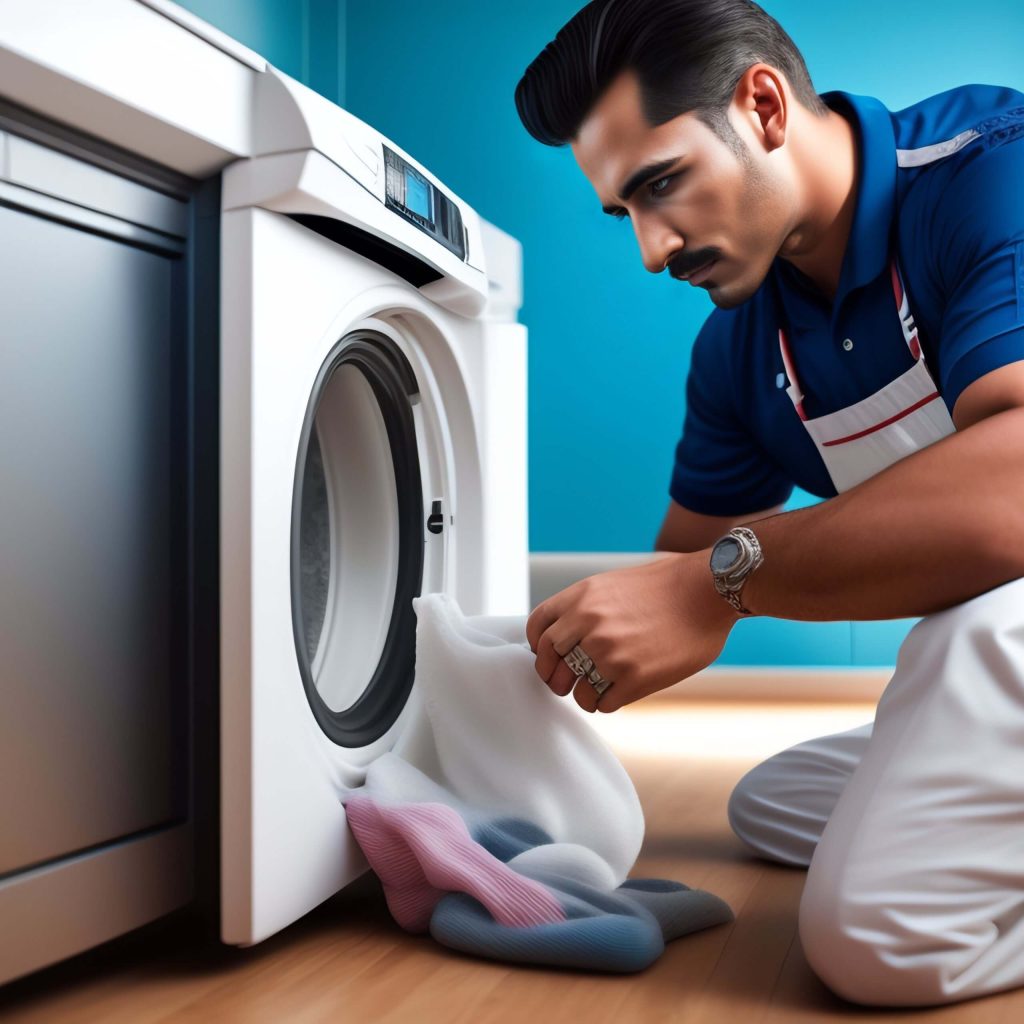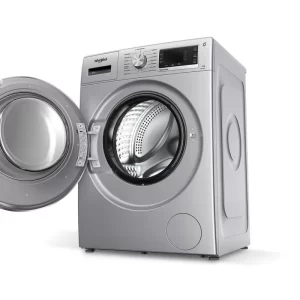Why Does Washing Machine Shake?
Washing machines are essential appliances that simplify laundry tasks and enhance efficiency. However, it can be troubling when your washing machine begins to shake violently during its cycle. This shaking raises concerns not only about the machine’s performance but also about potential damage to the unit and the surrounding area. In this article, we will examine why does washing machine shake, explore the potential consequences of excessive shaking, and discuss preventive measures to ensure your washing machine operates smoothly.
Understanding the Mechanics of a Washing Machine
How a Washing Machine Works
Before addressing the shaking issue, it’s essential to understand how washing machines operate. Most modern washing machines use a spinning mechanism to remove water from clothes after rinsing. During this spin cycle, the inner drum rotates at high speeds, creating significant centrifugal force. This force is necessary for extracting water but can cause lateral and vertical vibrations if the load is unbalanced or if there are mechanical issues.
Types of Washing Machines
Washing machines primarily fall into two categories: front-loading and top-loading.
- Front-loading washing machines: These are known for their energy efficiency and water-saving capabilities. However, they can be more prone to shaking if the load is not balanced correctly.
- Top-loading washing machines: These are often easier to load and unload but may also encounter shaking issues. The design allows for a more significant vertical movement, which can lead to instability during the spin cycle.
Common Causes of Washing Machine Shaking
1. Unbalanced Loads
One of the most common reasons for a washing machine shaking is an unbalanced load. When laundry is unevenly distributed within the drum, it causes the machine to vibrate excessively during the spin cycle. This imbalance can occur due to:
- Heavy and light items mixed together: For example, washing a single heavy blanket with lighter clothing can create an uneven weight distribution.
- Inadequate loading: If you wash only a few items, they might not provide enough weight to keep the drum steady, leading to vibrations.
2. Improper Installation
The installation of your washing machine plays a crucial role in its performance. If your washer is not correctly leveled, it can shake during operation. Common installation mistakes include:
- Uneven flooring: If the floor where the machine is placed is uneven, it can lead to instability. Using a leveling tool can ensure that all four legs of the washing machine make proper contact with the floor.
- Incorrect leg adjustments: Washing machines typically have adjustable legs. If these are not set correctly, the machine may be tilted, causing it to shake.
3. Worn-Out Suspension Springs
The suspension springs in a washing machine are designed to absorb vibrations from the drum. Over time, these springs can wear out or break, leading to increased movement and shaking. Symptoms of worn-out springs include:
- Excessive noise during cycles: You may notice a loud banging or clanking sound alongside the shaking.
- Visible sagging: Check the outer tub for visible sagging, which can indicate spring deterioration.
4. Damaged Shock Absorbers
Similar to suspension springs, shock absorbers play a significant role in stabilizing the washing drum. If these components are damaged or worn, the machine will struggle to maintain stability during cycles.
Symptoms of Damaged Shock Absorbers
- Banging noises: A damaged shock absorber may create loud noises during a spin cycle.
- Vibration in excess: If the shaking is persistent and excessive, it may signal failing shock absorbers.
5. Faulty Drum Bearings
Drum bearings are crucial for smooth rotation. If they are damaged or worn out, they can cause imbalances and lead to shaking.
Symptoms of Poor Drum Bearings
- Grinding noises: If you hear grinding sounds coming from the machine, the bearings may be the cause.
- Increased shaking: If the shaking increases during spin cycles, it could indicate bearing issues.
6. Overloading the Washer
While it may be tempting to cram in as much laundry as possible, doing so can lead to several issues, including shaking. Overloading the washer can result in:
- Imbalanced loads: This is often a direct outcome of overloading, where the clothing items do not distribute evenly.
- Increased wear and tear: Overloading can lead to excess strain on the machine, resulting in premature wear of various components.
7. Ineffective Anti-Vibration Pads
Some washing machines come with anti-vibration pads that are designed to minimize movement and noise. If these pads are worn out or missing, the machine may shake significantly.
Signs of Deteriorated Anti-Vibration Pads
- Visible wear: Check the condition of the pads under your washing machine; if they are worn flat, they will need replacement.
- Height adjustments: If the machine seems to wobble excessively, the pads may no longer be effective in stabilizing it.
8. Floor Issues
The surface beneath your washing machine can also affect its stability. Issues such as:
- Slippery surfaces: If a washing machine is placed on a slick floor, it is more prone to sliding and shaking.
- Weak floor: An inadequate floor that cannot support the weight and movement of the machine can cause excessive shaking.
Consequences of a Shaking Washing Machine
1. Deterioration of Appliance Components
Consistent shaking can lead to premature wear and tear, ultimately shortening the life of your washing machine. Components such as shock absorbers, suspension springs, and bearings are particularly vulnerable to damage due to excessive vibrations.
2. Damage to Surrounding Areas
Shaking can also lead to damage in your laundry area. This could range from affecting the nearby appliances to causing structural damage in extreme cases.
- Flooring damage: Repeated shaking can wear out flooring materials over time, such as tile or laminate.
- Impact on cabinets: If your washing machine is placed near cabinets or walls, persistent vibration can cause scratches, dents, and other forms of damage.
3. Inefficient Washing
When a washing machine shakes excessively, it may not perform optimally. Clothes may not be cleaned effectively, and water may not be fully extracted, leading to damp laundry.
4. Increased Energy Costs
An unstable washing machine may consume more energy, causing your utility bills to rise unnecessarily. This inefficiency can stem from its inability to complete cycles properly, overseen by the additional power required to deal with excessive vibrations.
 Preventive Measures
Preventive Measures
1. Loading Properly
To minimize the risk of shaking, practice proper loading habits. Group similar items together and avoid overloading the washer. This will promote balanced loads and smooth operation.
2. Ensuring Proper Installation
Ensure that the washing machine is installed on a level surface. Use leveling tools to adjust the machine’s legs and check alignment with the ground frequently.
3. Regular Maintenance Checks
Conduct regular maintenance to identify and address issues proactively:
- Inspect components: Check the condition of suspension springs, shock absorbers, and bearings every few months.
- Test load balancing: After each washing cycle, make it a habit to distribute items evenly within the drum.
4. Replacing Worn Components
Be vigilant about replacing worn-out parts to prevent shaking. Replacing springs, shock absorbers, or bearings at the first sign of wear can save you from more significant issues down the road.
5. Adding Anti-Vibration Pads
Installing anti-vibration pads or mats can significantly reduce shaking. Ensure that these pads are in good condition and replace them when necessary.
6. Taking Care of the Floor
If your washing machine is on a slippery surface, consider laying down a rubber mat or some other grippy material to stabilize it. Additionally, ensure that the underlying structure is strong enough to support the washer and withstand its movements.
Seeking Professional Help
If you have tried various fixes and your washing machine continues to shake excessively, it might be time to consult with a professional technician. They can conduct a through assessment to address underlying mechanical issues that could be beyond your capacity to troubleshoot.
Conclusion:why does washing machine shake
In conclusion, a shaking washing machine can be an alarming experience not only because it disrupts the peace of your home but also due to its potential consequences on the appliance’s longevity and surrounding areas. Understanding the common reasons behind this shaking, such as unbalanced loads, improper installation, and worn-out components, can empower you to address the issue effectively. Implementing preventive measures and conducting regular maintenance can go a long way in ensuring your washing machine operates smoothly. Ultimately, knowing why does washing machine shake will aid you in taking proactive steps to minimize disruption and prolong the life of your appliance.



